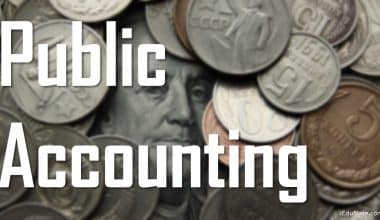The Financial Industry Regulatory Authority (FINRA) is an NGO that writes and implements rules that govern registered brokers and dealers in the United States. Its primary purpose is to protect investors against bad practices and fraud.
However, it casts a much broader set of responsibilities. The organization also deals with customer complaints. It oversees regular market functions and keeps a library of important educational material.
Financial Advisors Should Have a FINRA License
Financial advisors need FINRA licenses. Even though there are no specific requirements, you generally need to have a few securities licenses before selling your investment products.
The type of license you need depends on the specific products you will be selling and how you will get compensation.
The most important financial licenses to get include:
- Series 6 License
- Series 7 License
- Series 65 License
- Series 63 License
Breaking Down FINRA Responsibilities
FINRA covers so many responsibilities that it is divided into various departments.
They include:
- Board and External Relations, which includes Government Affairs, Communications, and Investor Education departments.
- Member Supervision to oversee member firms
- Enforcement to handle disciplinary action against brokers
- The technology department touches on various aspects of technology at FINRA.
- The legal department monitors corporate legal functions and FINRA rulemaking. It covers Dispute Resolution and Corporate Financing departments.
- The Office of Hearing Officers offers unbiased adjudicators to overlook disciplinary actions presented by the Enforcement department.
- Market Regulation Transparency Services. It works with the SEC and exchanges to keep track of markets and overlook firms that identify fraud and manipulation in the market. The department also ensures that firms comply with federal securities laws.
Here are a few of FINRA’s most important responsibilities
#1. Regulating and Overseeing Brokers
After registering with FINRA, brokers need to complete ongoing education requirements. They are also subject to regular audits and checks.
The goal is to make sure that firms and their employees are honest and competent. If a broker is noncompliant, FINRA can take disciplinary action against them.
#2. Supervising Equity Markets
FINRA’s technology department has a significant role in maintaining integrity in the market. It monitors transactions in the market and keeps track of daily orders.
FINRA uses artificial intelligence and algorithms to identify patterns and indications of fraud or market manipulation.
If there are any signs of foul play, FINRA will flag it. Alternatively, they may pass the issue to other relevant parties.
#3. Receiving and Addressing Customer Complaints
If you have a problem with a brokerage firm or broker, FINRA can help you. File a complaint with them, and they will conduct an investigation on your behalf.
#4. Providing Investors With Essential Tools and Resources
FINRA has a variety of investing and personal finance resources to guide beginner investors. Advanced investors can also learn a few things from them. There are a few free online investing courses as well.
If you have any investment-related questions or concerns, you can reach out to FINRA through toll-free calls. They will help you understand the details of your statement and any other issues. Senior citizens can enjoy a special helpline.
#5. Dispute Resolution Services
Sometimes, customer complaints turn into legal action. FINRA offers you a platform for arbitration. It also provides mediation and arbitration between brokers and their customers. This may be a good alternative to court processes.
While FINRA may seem like an insignificant player in the background, it is an important player in the industry. In fact, you should consider making it the primary resource for safe investment and securities.
Take advantage of its resources to improve your trading experience. The organization seeks to ensure that broker-dealer operations are honest and fair.
Related Articles
- 7 Tips to Prepare for Debt Resolution
- Customer Management: 11 Tips For Those In The Repair Business
- HOME INSURANCE: Best Insurance Companies and Policy
- FINANCIAL REPRESENTATIVE: Roles, Responsibilities & Salaries
- FINANCIAL ADVISOR: Description, Jobs, Companies, Career, (+ Easy guide to becoming an Advisor)






